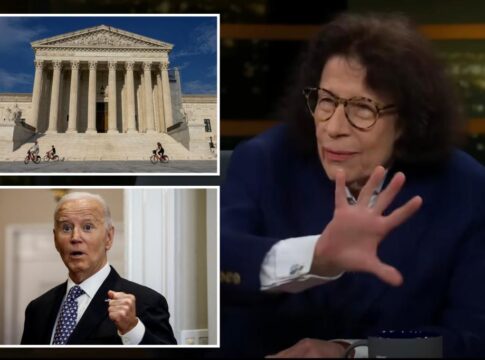An icon in the shape of an angle pointing down.
Tom Williams/CQ-Roll Call via Getty Images
- Kamala Harris selected Gov. Tim Walz of Minnesota as her 2024 running mate.
- A known progressive, Walz served six terms in Congress before becoming governor.
- Walz served in the Army National Guard, taught high school, and coached football.
Kamala Harris’ whirlwind effort to select a vice president ended when Gov. Tim Walz of Minnesota secured the coveted No. 2 spot.
A 60-year-old veteran and former teacher with decades of governing experience, Walz beat out more moderate candidates from swing districts. In selecting Walz as her second-in-command, Harris handed progressives a big win.
On Tuesday, he’ll debate former President Donald Trump’s running mate, Ohio Sen. JD Vance.
Here are 12 things to know about Walz.
Tim Walz was born in rural West Point, Nebraska, in 1964.
Star Tribune via Getty Images/Getty Images
Born to Darlene and James, a school administrator, Walz grew up in Valentine, Nebraska, a small town close to the South Dakota border best known for the annual influx of Valentine’s Day cards from people wanting their love letters to bear the town’s postmark.
“An awful lot of who I am was built on being a Nebraskan,” Walz told the Omaha World-Herald in 2018.
When Walz was 19, his father died of lung cancer, leading the family to move closer to the even smaller town of Butte, Nebraska, to be near family. Walz often jokes that there were only 24 kids in his high-school graduating class, including 12 cousins.
The Minneapolis Star Tribune reported that Walz’s mother still resided in Nebraska.
He enlisted in the Army National Guard when he was 17.
Minnesota Governor’s Office/AP
Walz served in the Army National Guard for 24 years. He didn’t serve in combat but helped respond to disasters such as floods and tornadoes, Minnesota Public Radio reported. He was also deployed overseas in connection with Operation Enduring Freedom.
Walz retired in 2005 as a command sergeant major, which made him the highest-ranking enlisted soldier to ever serve in Congress when he was elected in 2017, according to the House Committee on Veterans’ Affairs.
He worked odd jobs before earning a bachelor’s degree from Chadron State College in Nebraska.
Michael Goldberg/AP
Walz built grain silos, worked in manufacturing, and processed mortgage loans until landing a temporary teaching position at a South Dakota Native American reservation inspired him to pursue a career in education.
Walz graduated from Chadron State College, a small public college, with a degree in social-science education in 1989.
Walz speaks conversational Mandarin from his time teaching in China.
J. Scott Applewhite/AP
From 1989 to 1990, Walz taught at a high school in China through WorldTeach, a program affiliated with Harvard University. He was among the first groups of American educators approved by the US government to teach in Chinese high schools.
Before entering politics, he was a high-school geography and social-studies teacher.
Glen Stubbe/Star Tribune via AP, Pool
After his work in China, Walz taught at a public high school in Alliance, Nebraska. There, he met his wife, Gwen Whipple, who was also a teacher. They got married in 1994 and moved to Minnesota, where they both began teaching at Mankato West High School.
Walz earned a master’s degree in educational leadership from Minnesota State University, Mankato, in 2001. He wrote his master’s thesis about Holocaust education and genocide studies.
Walz coached high-school football and served as a faculty advisor for the school’s gay-straight alliance.
MARLIN LEVISON/Star Tribune via Getty Images
Walz led Mankato West’s football team to their first state championship in 1999. He also served as the first faculty advisor for the school’s gay-straight-alliance student group, a position he felt signaled acceptance and helped dispel stereotypes.
“It really needed to be the football coach, who was the soldier and was straight and was married,” Walz told the Minneapolis Star Tribune in 2018 of his role in the GSA.
Walz and his wife, Gwen Walz, have two children.
J. Scott Applewhite/AP
In an interview with the Minneapolis Star Tribune, Walz said his children were conceived through fertility treatments at Minnesota’s Mayo Clinic. He shared the information after an Alabama Supreme Court ruled in February that frozen embryos were considered people, threatening access to fertility treatments in the state.
After seven years of fertility treatments, the couple welcomed their first child in 2001, a daughter named Hope. Their son, Gus, was born in 2006. In addition to their two kids, the Walz family also owns a rescue dog, Scout.
Walz won a seat in the House of Representatives in 2006 and served six consecutive terms.
Star Tribune via Getty Images/Getty Images
Walz was still teaching high school when he announced his first congressional bid in 2005. He previously told Minnesota Public Radio that he decided to run for Congress after his students were asked to leave a campaign rally for President George Bush in 2004 because some were wearing stickers supporting the Democratic presidential nominee John Kerry.
Democrats had a banner year in 2006, harnessing anti-Iraq War sentiments to retake both chambers of Congress. Walz beat out the longtime incumbent representative, Gil Gutknecht, and took his seat representing the 1st Congressional District of Minnesota, a relatively rural area. In 2008, Walz was reelected with an impressive 62% of the vote before being elected again in 2012, 2014, and 2016.
Before he became a progressive darling, Walz was an NRA-endorsed congressman.
Anadolu/Getty Images
Throughout his 12 years in Congress, Walz developed a fairly centrist voting record, probably because of the conservative bent of his district. In each of his five reelection campaigns, Walz touted an “A” rating from the National Rifle Association but said his opinions had changed by the time he ran for governor.
The Hill reported that former Speaker Nancy Pelosi favored Walz over Harris’ other reported finalists, even though he didn’t always follow the speaker on the big votes of the era. In 2008, he opposed Bush’s $700 billion Wall Street bailout plan, saying it did not do enough for average homeowners. Walz supported President Barack Obama’s Affordable Care Act, which narrowly passed the House because of opposition from other conservative Democrats.
Walz was particularly interested in veterans’ issues during his time in Washington. He was the primary sponsor of five bills that were eventually enacted, two of which related to veterans’ care.
As governor, Walz championed progressive policies, including paid family leave, reproductive rights, and universal background checks on firearms.
Stephen Maturen/Getty Images
Despite his reputation as a relatively centrist congressman, Walz reinvented himself as a loyal progressive during his time as governor. He won the 2018 gubernatorial election by more than 11 points and was reelected in 2022. Though he was never a fixture of the mainstream media, his progressive record garnered some attention among national Democrats in recent years, as The New York Times reported.
While serving as Minnesota’s 41st governor, Walz legalized recreational marijuana, enshrined the right to abortion, and secured universal free school meals. In 2023, Walz signed a universal background-check bill into law, ignoring the opposition of a state gun owners’ group that was staunchly opposed to tougher requirements for gun ownership. Recently, Walz took a relatively sympathetic view toward those protesting how President Joe Biden had handled the war in Gaza and said he supported a “working cease-fire.”
Walz was the first one to use “weird” as an insult.
Stephen Maturen/Getty Images
With his rural background and shock of white hair, some see Walz as a quintessential Midwestern dad. The vice-presidential nominee, however, proved that he’s capable of hurling a biting, resonant insult. After Harris flew to the top of the ticket, Republicans and Democrats alike started hurling a new insult back and forth: “weird.”
Sitting for an interview on “Morning Joe,” Walz was the first one to use the term when he described Donald Trump and JD Vance in simple terms: “These guys are just weird.” The word evidently struck a cultural chord, as it later appeared in campaign videos, X posts, and cable news segments.
In a big win for progressives, Harris picked Walz over more moderate candidates from swing states.
Elizabeth Frantz/File Photo/Reuters
Like much of Harris’ campaign, the competition to be her second-in-command played out in a stunningly public, accelerated way. She was reported to be deciding between a variety of contenders, including moderates from swing states who had attracted the ire of the Democratic Party’s more liberal wing.
Walz didn’t face the same opposition or risk ruffling the same feathers as other contenders. He proved himself an adept public speaker, able to quip about Trump in relatable terms and eloquently defend Harris’ record. Though Minnesota isn’t considered an especially competitive swing state and Walz was relatively unknown on the national stage, he’s able to appeal to rural voters and has extensive governing experience.


